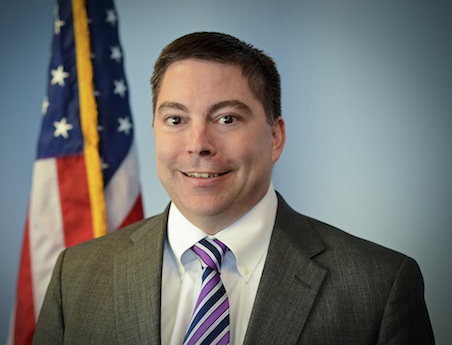FCC's O'Rielly Slams Enforcement Bureau

The smarter way to stay on top of broadcasting and cable industry. Sign up below
You are now subscribed
Your newsletter sign-up was successful
Republican FCC commissioner Michael O'Rielly lit into the FCC's Enforcement Bureau in a speech to the Federal Communications Bar Association Thursday (June 11) in Washington, calling the FCC's enforcement regime "dangerously misguided."
"[T]he Commission seems more intent on obtaining newspaper headlines trumpeting accusations and eye-popping fines," he said according to a copy of his speech. "In other words, self-aggrandizing fanfare is a major objective and often appears to be more important than case foundation, correcting the violation or establishing a reasonable deterrent."
O'Rielly's speech came a day before the FCC's network neutrality rules go into effect, which includes a major role for the bureau in investigating complaints, a point he did not miss in his speech.
"The Commission’s order, which is being challenged in court as we speak, provided extensive and unprecedented authority to the Enforcement Bureau to essentially act as the Internet traffic cop," he said. But O'Rielly said it will be a cop without the funds to handle all the work it is being delegated in the order—there are case-by-case complaint processes for interconnection and a host of potential complaints, over everything from rates to business plans to suppression of speech—in the general Internet Conduct Standard.
O'Rielly said he had evidence, at least anecdotal, of the bureau's already misguided priorities.
"I recently heard from a couple of parties that were potentially subject to enforcement actions," he said, naming no names. "Having the good sense to try to discuss their issues with the Enforcement Bureau, each was told that any potential settlement would generate a penalty in the multiple-hundreds of millions or billions and require an admission of guilt. To make the situation more outrageous, the Bureau indicated that there was little room to negotiate; it was a take it or leave it offer rather than the beginning of a process to come to a settlement position. Suffice it to say, no agreements were reached in these circumstances."
He also said the FCC seemed to be gauging enforcement success by how many dollars were involved. He said the measure should be whether regulatees are complying with the rules. "To equate financial penalties with success is like measuring the safety of a major city by the number of people arrested in a given year," he said.
The smarter way to stay on top of broadcasting and cable industry. Sign up below
An FCC spokesperson declined comment.
Contributing editor John Eggerton has been an editor and/or writer on media regulation, legislation and policy for over four decades, including covering the FCC, FTC, Congress, the major media trade associations, and the federal courts. In addition to Multichannel News and Broadcasting + Cable, his work has appeared in Radio World, TV Technology, TV Fax, This Week in Consumer Electronics, Variety and the Encyclopedia Britannica.

